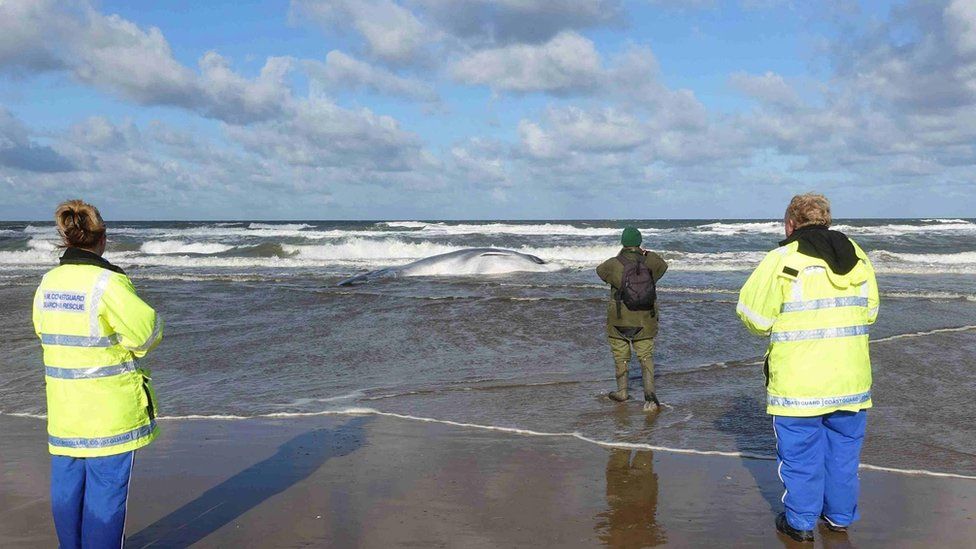North Norfolk fin whale: Finding is 'really unusual'
- Published

An expert has been left puzzled as to why a fin whale has washed up on the coast of north Norfolk.
The 40ft (12m) whale was discovered by wardens at the Holkham National Nature Reserve on Thursday.
The Cetacean Strandings Investigation Programme (CSIP) was contacted and a post-mortem examination is expected to be carried out.
Evolutionary biologist Dr Ben Garrod said it was "really unusual" for a fin whale to be found on the east coast.
"It should not be in those waters," he said.
"We see fin whales occasionally on the southern coast or more the west coast of the UK, so Ireland, right up to Scotland.
"But you never get them in the North Sea so what it was doing there, we have no idea at the moment."
Dr Garrod, who is based at the Anglia Ruskin University in Cambridge, said it was not yet known what killed the whale.
He said: "There are no obvious signs of net entanglement, no obvious signs of boat strike, not a clue, and that's what is so interesting."
The beach has remained open but Holkham Estate has urged members of the public not to venture close to the whale carcass and to keep dogs on leads.
Dr Garrod also urged members of the public to show the whale respect.
He said graffiti was found on the sperm whales which were washed up on the Norfolk coast in January.
"I would be heartbroken to see that happen to this big, beautiful visitor to our waters," said Dr Garrod.
Penny Clarke photographed the whale on the shore
Fin whales
- Listed as endangered by the International Union for Conservation of Nature (IUCN)
- Grow to about 26m (85ft) long and can live to about 90 years old
- They can weigh up to 74 tonnes and live on a diet of small fish, crustaceans and squid
- Published20 October 2016
- Published4 October 2016
- Published8 February 2016
- Published9 February 2016